PHILADELPHIA – Sarah Laurel spent years battling addiction, eventually living on the streets of the drug-ridden Kensington neighborhood. Then a fight with a few dealers sent her flying out a second-story window and was left for dead.
She recalled someone dragging her limp body, riddled with broken bones, into a vacant lot, where she laid for around 18 hours.
“I remember hitting the ground, and I just remember feeling my nose start leaking because it was bleeding, and then attempting to move and not being able to,” Laurel, who at that point had been addicted to drugs for about 10 years, told Fox News. “When they dragged me, I didn’t know that my leg was separated from my hipbone, so I didn’t know why I was in so much pain, but it hurt very badly.”
“I remember laying on the ground,” she continued. “I didn’t lose consciousness. I was awake the whole time.”
THIS WOMAN WAS LEFT FOR DEAD IN KENSINGTON’S DRUG DEN. NOW SHE’S SAVING OTHERS:
WATCH MORE FOX NEWS DIGITAL ORIGINALS HERE
Laurel broke her nose, shoulder blade, and several ribs and suffered leg injuries, leaving her in an intensive care unit for several days in 2017. She spent months in a wheelchair.
“It was a whole mess,” Laurel said. “And then I had to have surgery to learn how to walk again.”
The near-death experience opened Laurel’s eyes to the dangers of addiction. She realized she could have been one of the 5,388 Pennsylvanians who died of drug overdoses in 2017 when the state led the country in drug-related deaths, according to the Centers for Disease Control and Prevention. In 2021, the state’s fatal overdoses grew to a record 5,449.
Drug-related deaths have also skyrocketed nationwide. There were 106,699 drug overdose deaths in 2021, a 52% increase since 2017, according to the CDC.
“It doesn’t matter what your substance of choice is. It doesn’t matter how you start off using it,” Laurel said. “If a substance can be abused and you can become chemically dependent on it, you can find yourself in that situation or somebody that you love.”
Sarah Laurel, founder and executive director of Savage Sisters, is working to fight the stigma of addiction and offer help to those suffering from substance use disorder on the streets of Kensington. A near-death experience was the turning point for Laurel to get sober and rebuild her life dedicated to helping others battle addiction. (Courtesy: Savage Sisters)
Laurel’s bones might have been crushed, but her spirit wasn’t. The Philadelphia native resolved to rebuild her life and help others suffering from addiction.
‘We are worth saving’
Laurel worked as an account executive for a hotel chain in her 20s and eventually worked her way up to become the director of sales. But after getting prescribed Percocet to treat carpal tunnel syndrome, her battle with addiction began.
“I think a lot of people come and see the end stages of what substance use can look like and they look at a group of individuals and say, ‘that could never be me,’” Laurel told Fox News. “But I was wearing a suit and carrying a briefcase and going to work every day and I was a director.”
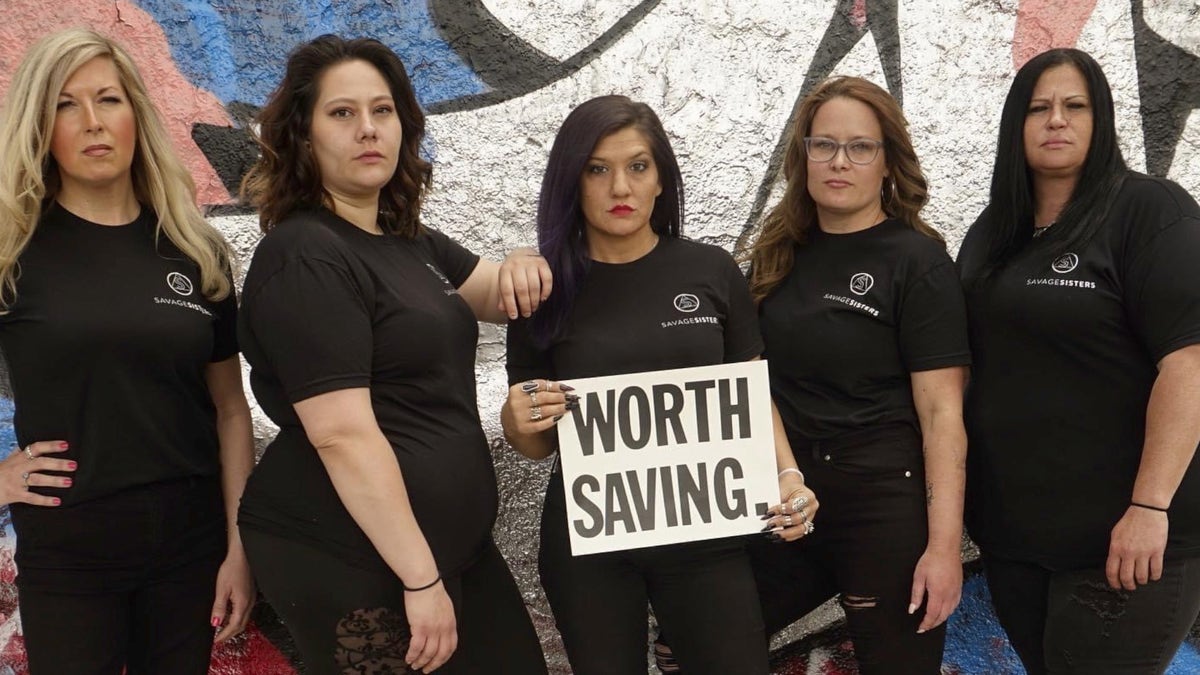
Savage Sisters fights to end the stigma of addiction. Many of the organization’s employees have suffered from substance use disorder themselves and understand what it’s like for drug users battling addiction on the streets of Kensington. (Courtesy: Savage Sisters)
OVERDOSES CONTINUE TO FUEL SALES FOR THE SACKLERS — THE FAMILY ACCUSED OF IGNITING THE OPIOID CRISIS
Laurel started using heroin after her opioid prescription ran out. She went to jail a few times and eventually ended up homeless in Kensington, an area that has gained international infamy for excessive public drug use.
She tried to get sober dozens of times. But while she was in recovery homes and rehab facilities, Laurel felt the staff lacked empathy toward drug addicts.
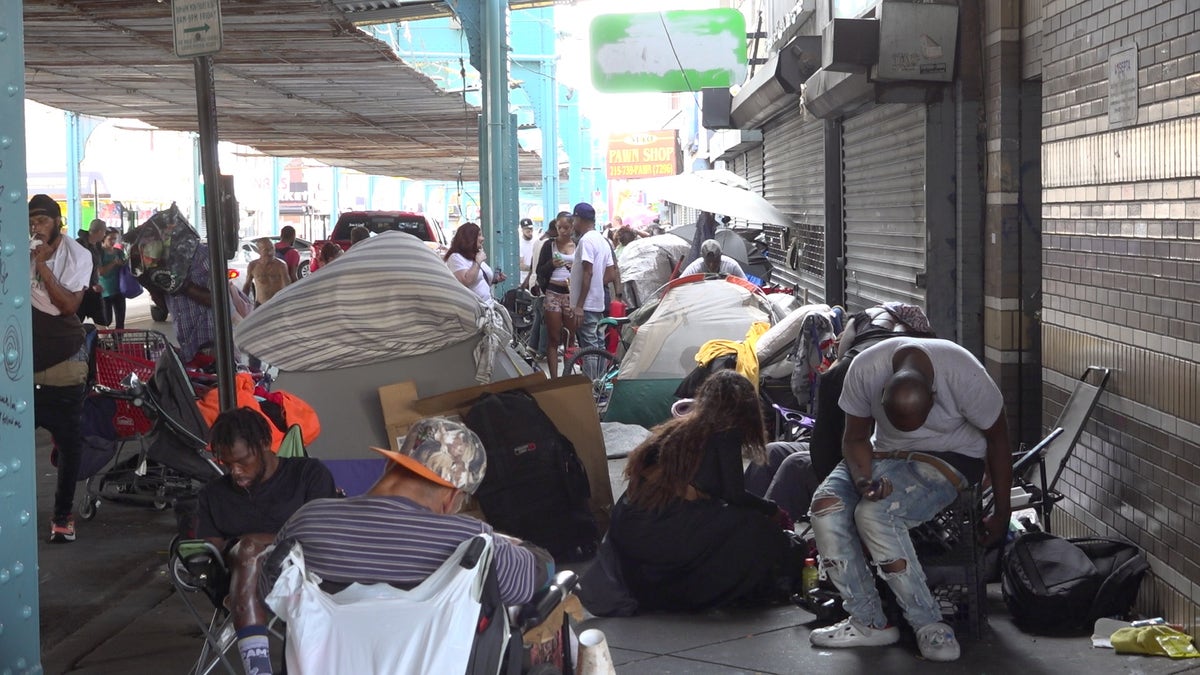
Dozens of drug users gather on Kensington Avenue. Laurel, who once lived on the Kensington streets while suffering from substance use disorder, says it could happen to anyone and that people need to be more understanding and empathic to the people who are battling addiction. (Megan Myers/Fox News Digital)
She also said many recovery homes didn’t have the resources to offer a variety of healing methods. They pushed addicts to get sober and get a job as quickly as possible.
“I felt very dehumanized,” Laurel said. “I had a bed a number. I was never looked at in the eyes. I did not feel like anybody was personally invested in me actually recreating my life and healing.”
Laurel got sober after the 2017 attack and the next year founded Savage Sisters, a nonprofit organization with nine recovery homes for people battling drug addiction. The group offers free healing methods, including yoga, kickboxing classes and an energy healing method called Reiki.
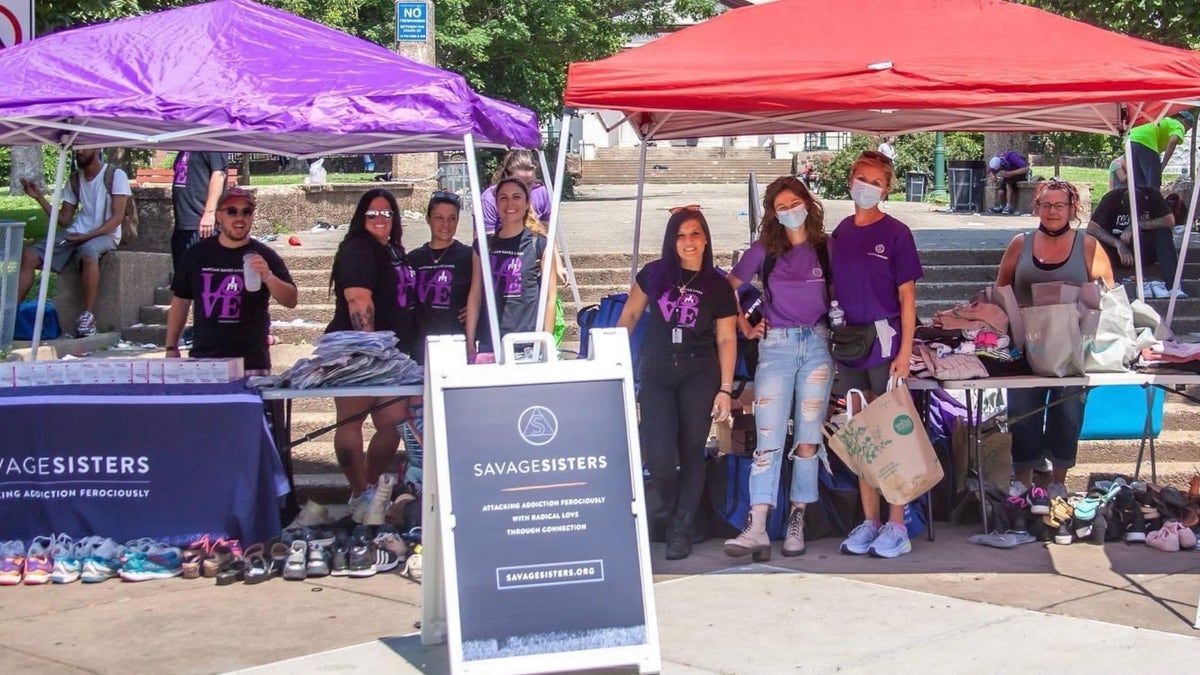
Savage Sisters does outreach in Philadelphia’s Kensington neighborhood. They hand out safe supply kits and opioid overdose reversal spray for people battling addiction. They also give out clothes and food to struggling drug users. (Courtesy: Savage Sisters)
“If you’re on that healing journey, you have to give yourself the space to heal in a multitude of ways, and you can only do that if you have a multitude of healing options,” said Laurel, Savage Sisters’ executive director. “All of those different modalities are invitations to our friends to be empowered in their own healing journey.”
Laurel and her colleagues, who have all experienced addiction themselves, hand out food, clothing and harm reduction kits with clean syringes to drug users at Kensington’s McPherson Park, known as “needle park.” They also distribute the opioid overdose reversal drug Narcan daily.
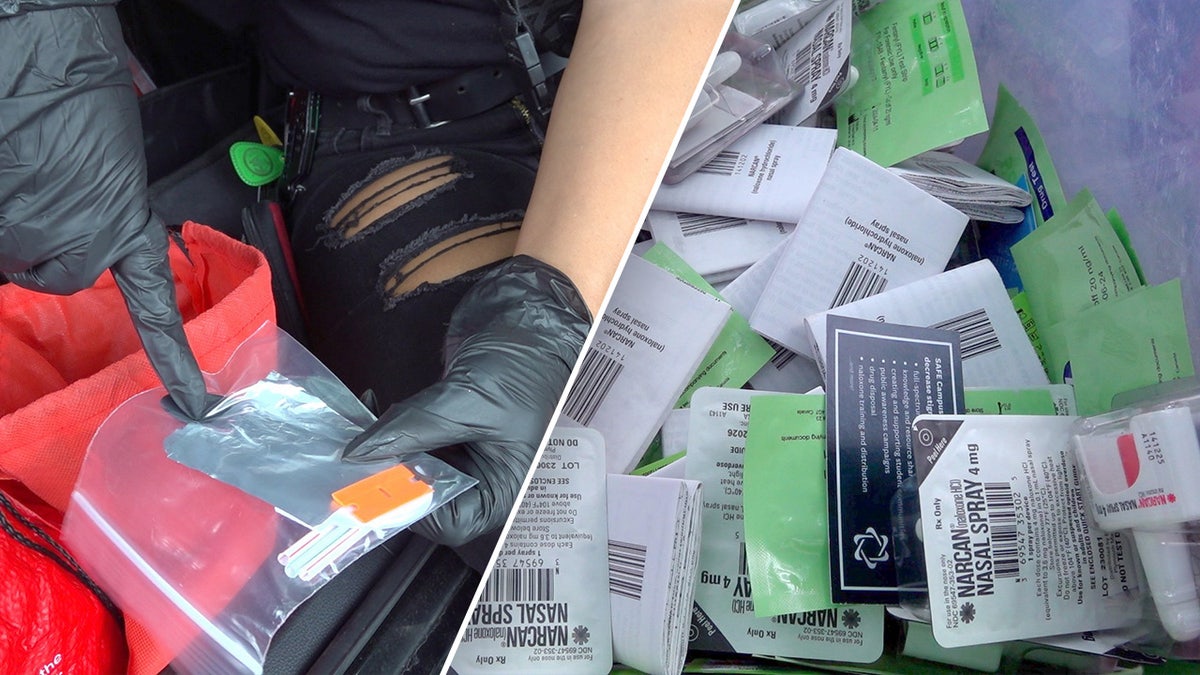
Savage Sisters does outreach in Kensington’s McPherson Park daily. They hand out harm reduction kits and opioid reversal spray to help people suffering from substance use disorder. (Megan Myers & Jon Michael Raasch/Fox News Digital)
AFTER FENTANYL KILLED HER SOULMATE, RECOVERING DRUG USER FIGHTS TO END STIGMA OF ADDICTION
“We all have lived experience,” Laurel said. “We’ve been there. We know what it looks like, smells like, feels like. We know the ache. We know the pain.”
But Laurel has watched more lethal substances infiltrate Philadelphia’s illicit drug supply over the last six years. The Kensington neighborhood was ravaged with heroin, then fentanyl. Now an addictive animal tranquilizer called xylazine has taken its toll on the community.
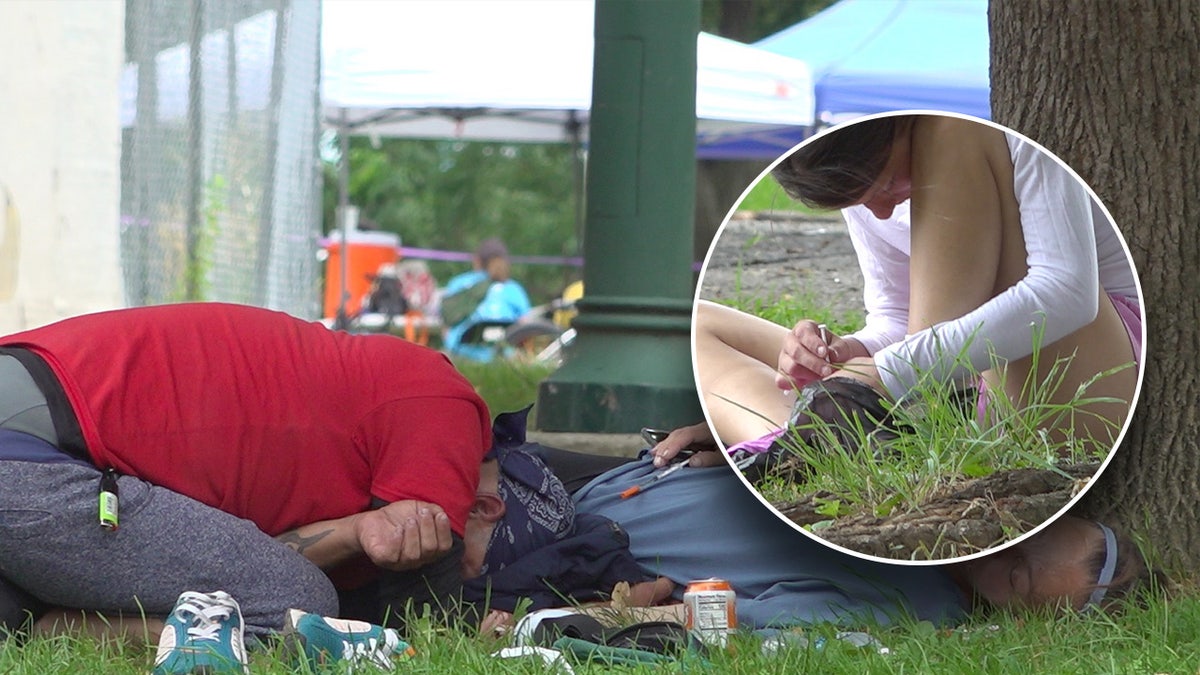
Dozens of people gather in McPherson Park to inject themselves with needles of pass out in the grass. (Megan Myers/Fox News Digital)
The substance was nicknamed the zombie drug since it sends users into a stupor and can give them painful, oozing and scabbing wounds. But Laurel said the “zombie” label and other stigmatizing language has been part of the problem.
“Don’t call us zombies,” she said. “We’re human beings. We are worth saving.”
Laurel said Philadelphia’s city leaders have neglected Kensington for years, but no one person could be blamed for the worsening drug supply. She said more potent drugs and a lack of empathy has put Kensington on a downward trajectory.
SEE WHAT KENSINGTON’S OPEN-AIR DRUG MARKET LOOKS LIKE ON A GLOOMY AUGUST AFTERNOON. WATCH:
CLICK HERE FOR THE FOX NEWS APP
“I do not think that there has been a sense of urgency or a level of compassion or care for this community for years,” Laurel said. “It’s going on a steady decline.”
“We really just want to help our friends. We want to help our community,” Laurel said. “We need to humanize the situation and make it more understandable and relatable so that we can actually treat it rather than judge it.”
To watch the full interview with Laurel, click here.